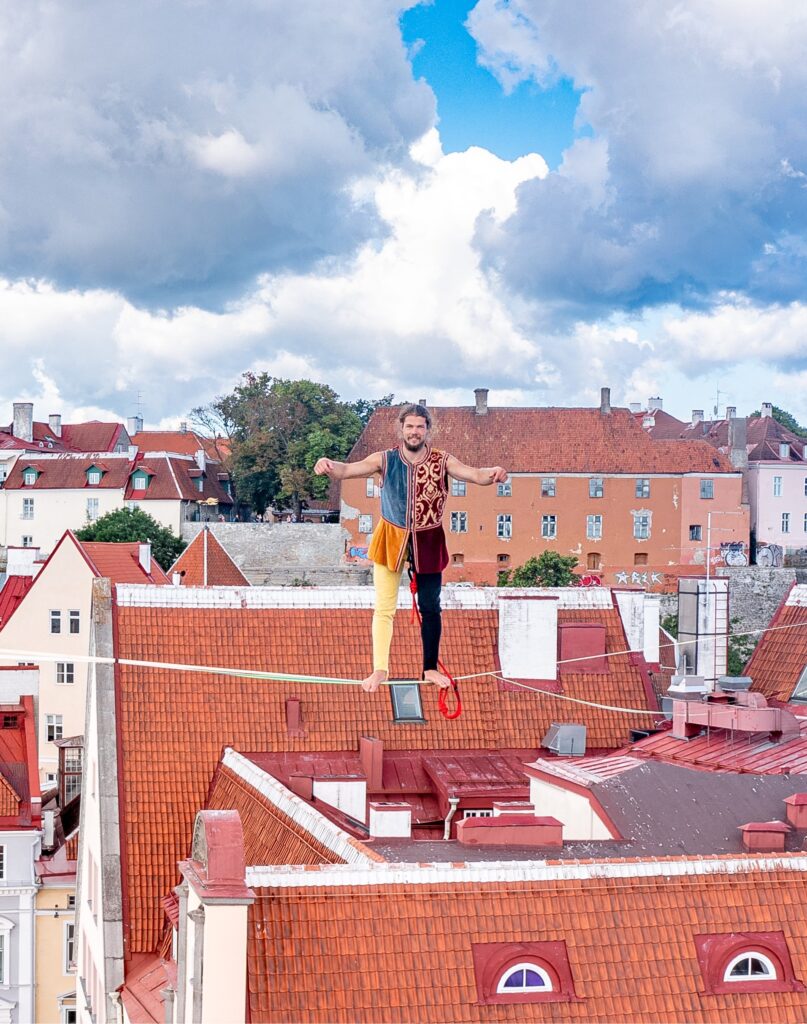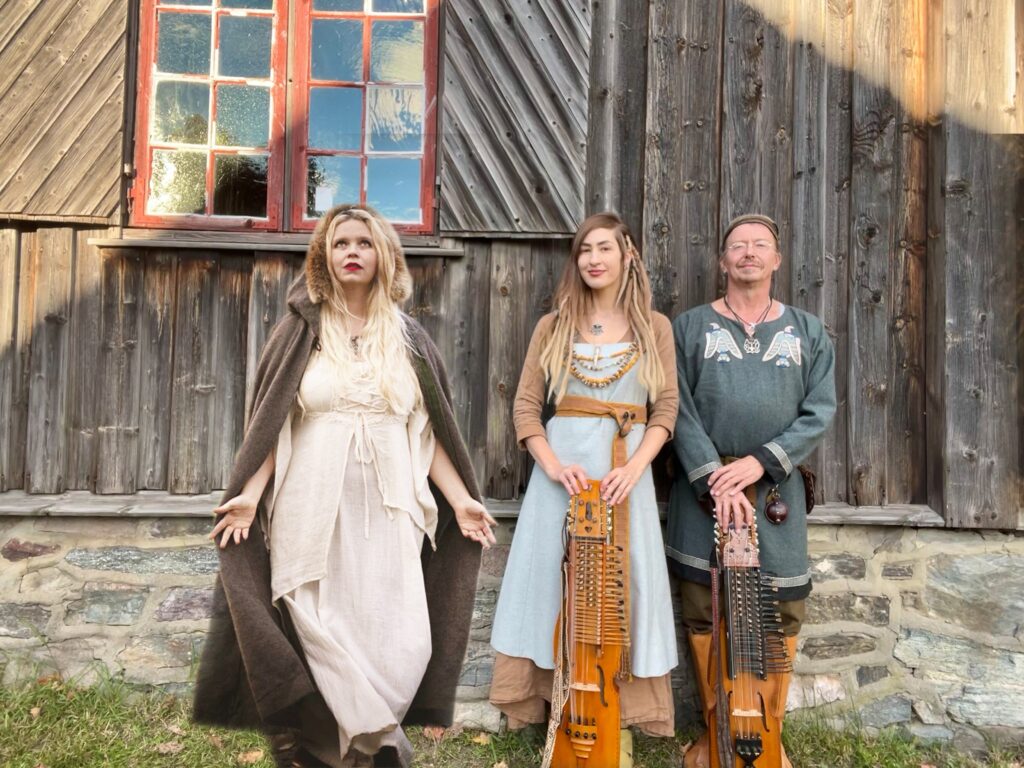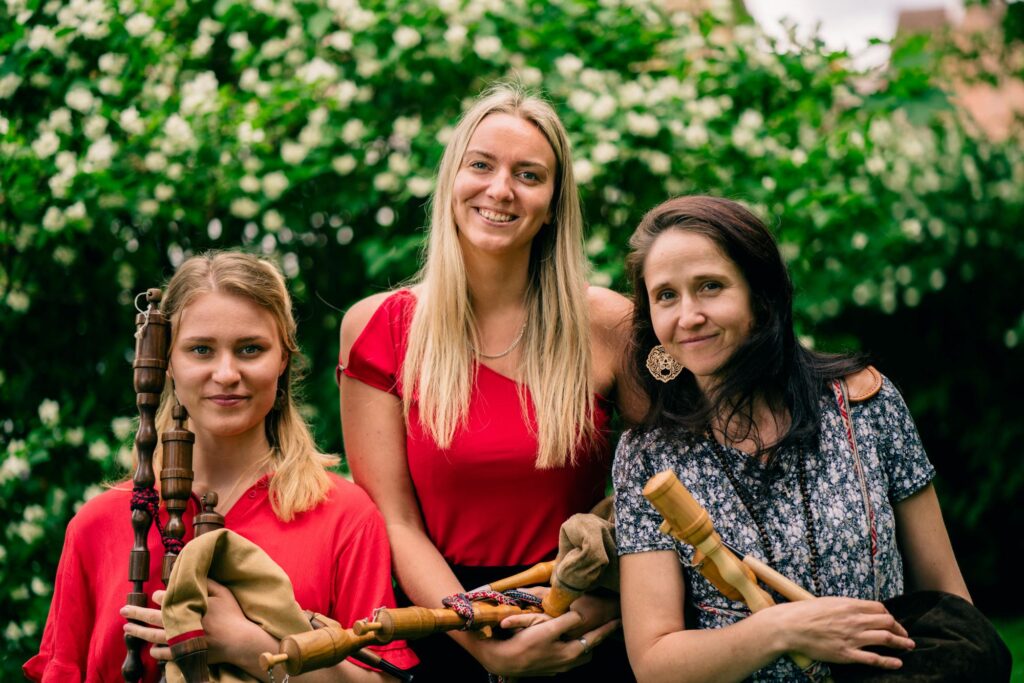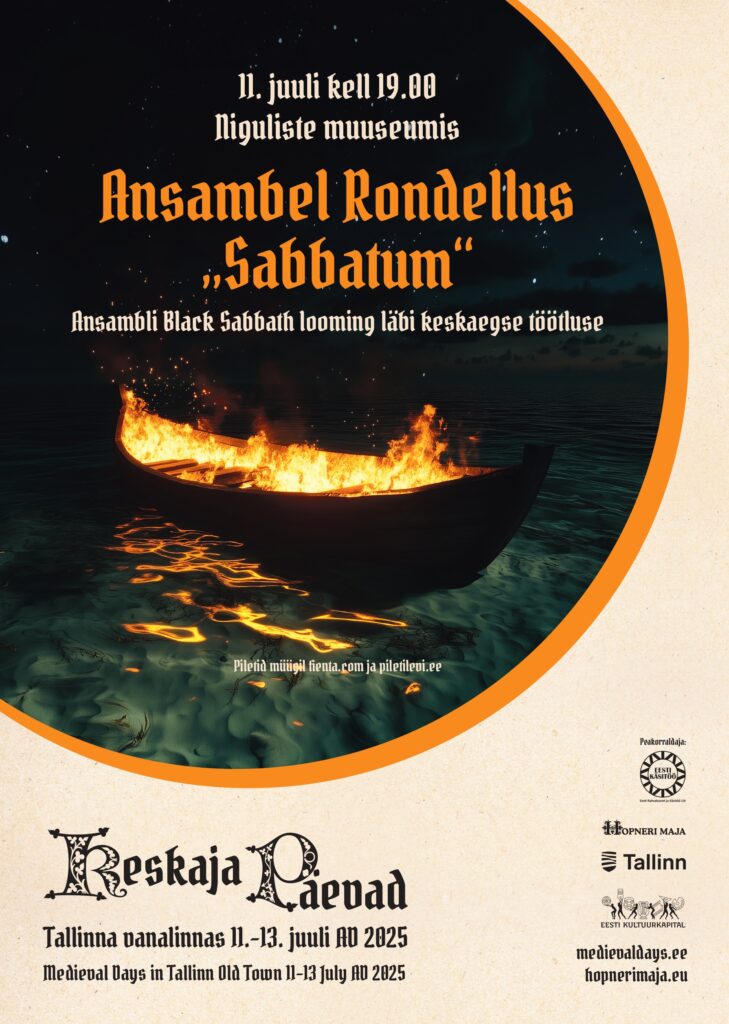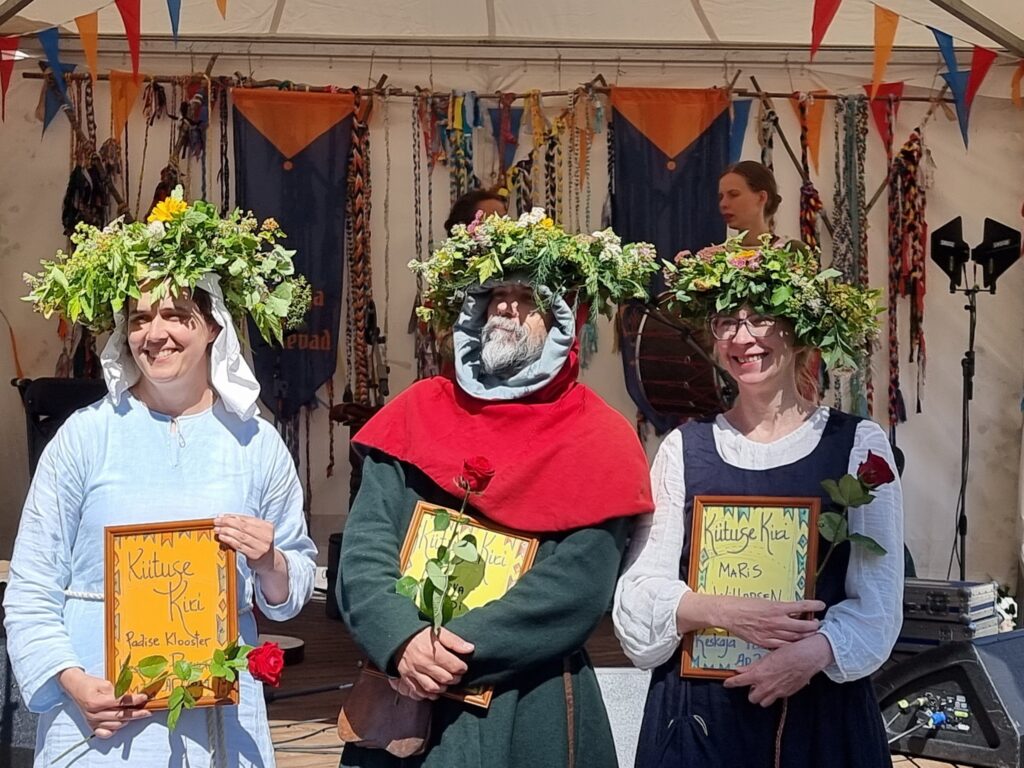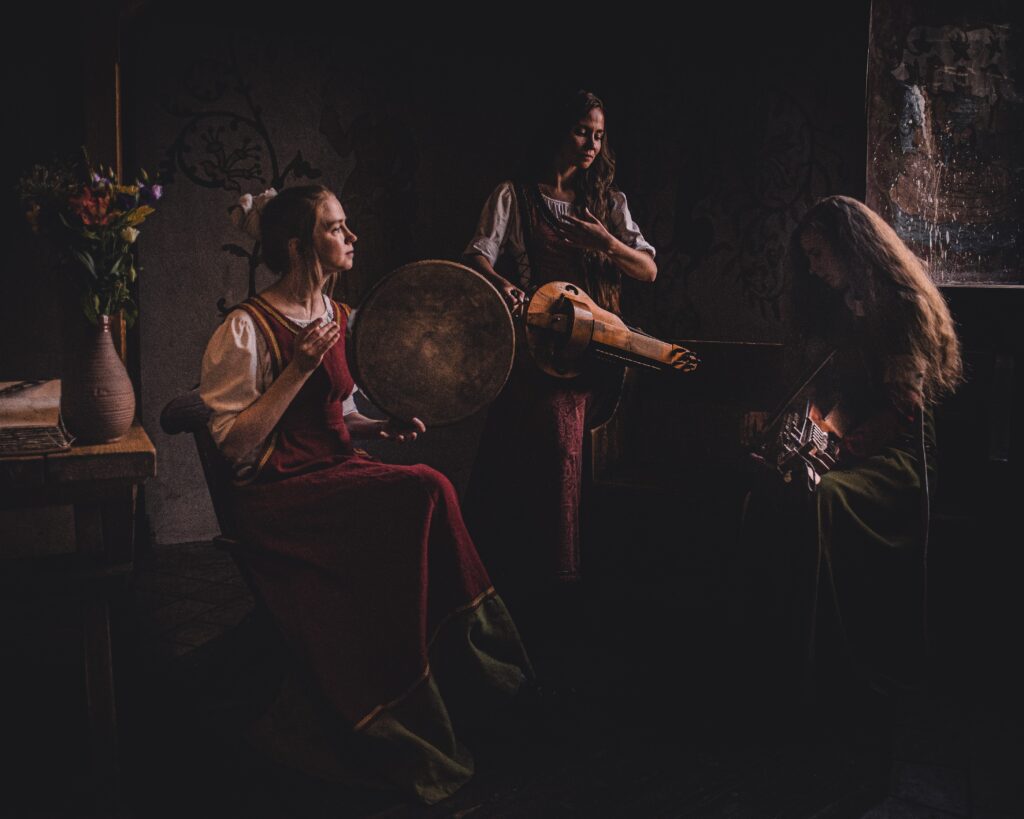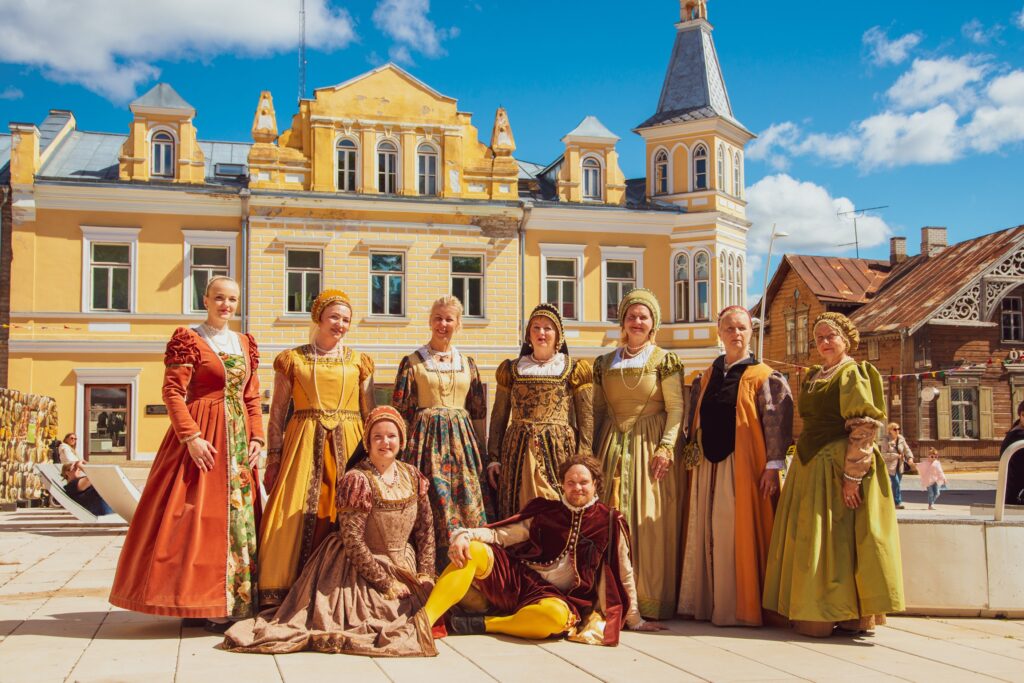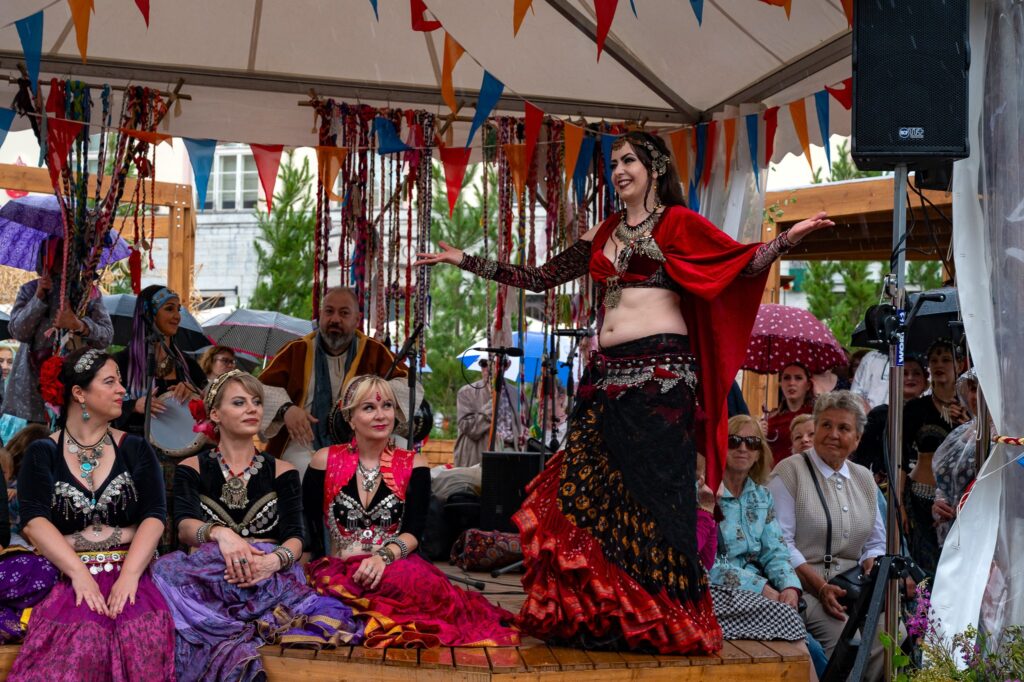Rondellus’ Sabbatum (2002) didst awaken great international acclaim and garnered plentiful praise. The ensemble was honoured with the Estonian Music Award in 2003 for Best Classical Music CD.
Through the years since, Rondellus hath performed Sabbatum upon request, both in Estonia and abroad, even as far as the Azores (2009). In the summer of 2025, Rondellus is summoned to present Sabbatum at Finland’s most prestigious medieval music festival, Sastamala Gregoriana. This doth provide a splendid chance to also bring this programme to Tallinn.
Rondellus performs in the following company:
-
Maria Staak: vocals, hurdy-gurdy
-
Eve Kopli: vocals, organetto
-
Johanna-Maria Jaama: fiddle, nyckelharpa
-
Anna-Liisa Eller: psaltery, recorders, bagpipes, percussion
-
Johannes Christopher Staak: vocals, recorders, hurdy-gurdy, bagpipes
-
Robert Staak: lute, percussion
Robert and Maria Staak speak thus:
Arranging the songs of Black Sabbath was, in truth, much akin to our daily craft with medieval manuscripts. First, we chose the songs and from these selected fitting material—chiefly melodies, somewhat harmony, and some guitar riffs. Our aim was not to replicate the originals note for note; indeed, entire sections of some songs were omitted. We treated the distilled essence as if it were a medieval source text.
In some songs, melodies were rendered with rhythmic freedom, following the text much as Gregorian chants are sung. Others adhere to the rhythmic patterns of medieval modes. Instrumental accompaniments were added to suit the moods.
In sum, we strove to follow the style of the 14th century, with exceptions such as Spiral Architect, arranged as a lute song from the 16th century, and A Hard Road, which bears a Renaissance air on the bagpipes.

